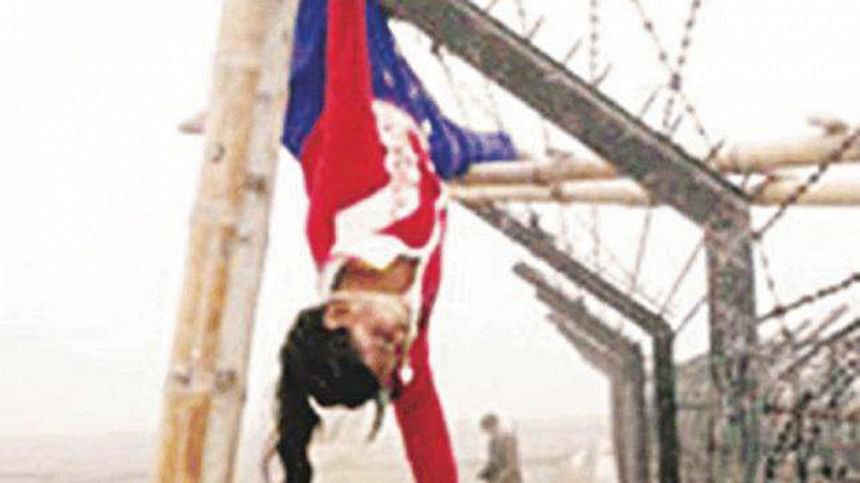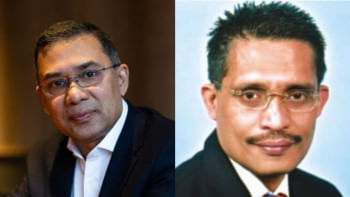14 years on, family still awaits justice

Fourteen long years have passed, yet the haunting image of Felani Khatun's lifeless body hanging from the barbed fence at the India-Bangladesh border lingers in the nation's collective memory.
For Bangladesh, the teenager's killing remains a painful scar, with justice still remaining elusive for her family.
"I have been waiting for justice for the last 14 years. My daughter was an innocent girl," Felani's father Nurul Islam told The Daily Star over the phone yesterday.
He said he visited India twice years ago and filed a complaint with the BSF special court, but justice has yet to be served.
Nurul alleged that the previous government took no steps to ensure justice and urged the current government to act.
Felani, a 15-year-old girl from Kurigram's Nageshwari upazila, was shot dead by an Indian Border Security Force member while trying to cross the barbed-wire fence near Kurigram and West Bengal's Koch Bihar on January 7, 2011.
As she climbed down a makeshift ladder, her dress caught on the fence. Unable to escape, she was spotted by the BSF, and constable Amiya Ghosh shot her.
Kirity Roy, secretary of Banglar Manabadhikar Suraksha Mancha , a rights organisation based in West Bengal, said India has installed barbed wire along the Bangladesh border, deep inside Indian territory, on the land of villagers.
"So, that day, BSF could have caught Felani without firing a shot. They could have presented her in court for breaking the law, but it didn't happen," he told this correspondent over the phone.
"Felani was stuck on the fence for a long time after being shot. Blood kept flowing for over an hour, but the BSF did nothing to rescue or treat her," he added.
He said the Supreme Court of India, which was set to hear final arguments in the case today, has postponed the hearing for unspecified reasons.
MASUM, which has been assisting Felani's family in their fight for justice, filed a writ petition in 2015 in collaboration with her father, demanding accountability and compensation.
"I don't know how long Felani's family will have to wait to get justice," said Kirity Roy.
"The erstwhile Bangladesh government did not strongly protest her killing, and we're not seeing strong action from the current government either," he added.
Initial investigations by the BSF court acquitted Amiya Ghosh of wrongdoing, a decision widely criticised by rights organisations in both countries.
A second BSF trial upheld the verdict, leading to further discontent.
In 2013, India's National Human Rights Commission declared Felani's killing a human rights violation and directed the Ministry of Home Affairs to pay Rs 5 lakh as compensation to her family through the Indian High Commission in Bangladesh.
However, the compensation was never paid, and successive governments failed to act, said Kirity Roy.
Felani's father said a week after Felani's murder, the then home minister visited his home and handed over Tk 3 lakh, and that's all the compensation he got thus far.
The minister assured that the government would take his family's responsibility and ensure justice, which was a false promise, he added.

 For all latest news, follow The Daily Star's Google News channel.
For all latest news, follow The Daily Star's Google News channel. 








Comments